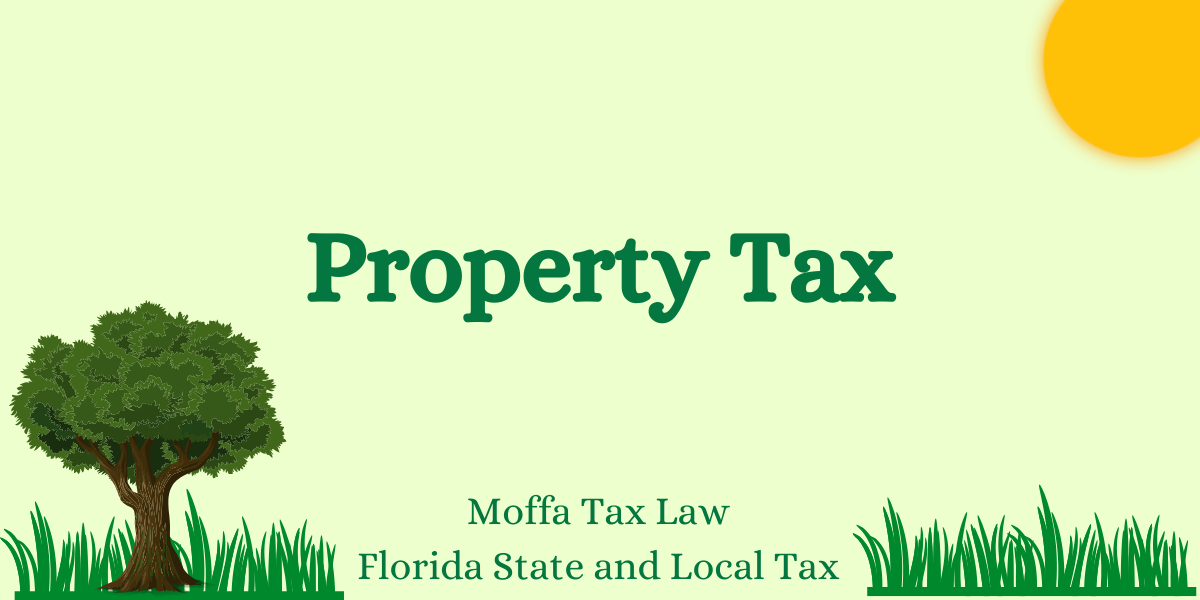NEWS & INSIGHTS


Property tax policies continue to evolve through judicial decisions and legislative actions. Below is a summary of key updates across various states concerning assessment valuation, tax exemptions, and procedural challenges in property tax matters.
I. Assessment
A. Valuation
New York: Johnstown Comrie Associates, LLC v. Assessor for City of Johnstown
In Johnstown Comrie Assocs., LLC v. Assessor for City of Johnstown, No. CV-23-1932 (N.Y. App. Div. Jan. 9, 2025), the Appellate Division upheld a lower court ruling that the City of Johnstown had overvalued two shopping centers. The court affirmed that the trial court properly exercised its discretion in rejecting both parties’ income capitalization valuations and blending their comparable sales valuations to determine the final assessment, ultimately lowering the taxpayer’s property tax burden.
Ohio: Adam v. Harris
In Adam v. Harris, 249 N.E.3d 144 (2024), the Ohio Supreme Court ruled that the state’s tax commissioner improperly set the clearing-cost rate for valuing woodland properties under the Current Agricultural Use Valuation (CAUV) program. The court remanded the case, instructing the tax commissioner to reconsider the valuation using more accurate and reliable land-clearing cost data.
Arizona: San Diego Gas & Electric Co. v. Arizona Dep’t of Revenue
In San Diego Gas & Electric Co. v. Arizona Dep’t of Rev., 2025 WL 351214 (Jan. 31, 2025), the Arizona Supreme Court resolved a dispute over how accumulated depreciation should be calculated in utility property valuation. The court determined that accumulated depreciation could result in a negative value that must be included in the final property valuation formula. This decision clarifies valuation rules for centrally assessed utility properties in Arizona.
B. Exemptions
Wyoming: State v. Uinta Cnty. Assessor
In State v. Uinta Cnty. Assessor, 2024 WY 106, 557 P.3d 298 (Wyo. 2024), the Wyoming Supreme Court held that state-owned land leased to a private company for commercial use was not exempt from taxation. The court found that the property, though held in trust for a state hospital, was primarily used for private business purposes and did not meet the standard for a governmental-use exemption.
New York: Peaceful Valley Housing Development Fund Corp. v. Town of Johnsburg
In Peaceful Valley Hous. Dev. Fund Corp. v. Town of Johnsburg, 233 A.D.3d 1252 (2024), the court ruled against real estate developers seeking an extension of their 15-year property tax exemption for a low-income housing project. The court found that the exemption had expired according to the original agreement and rejected the taxpayer’s claim that the exemption should have continued for an additional year.
Florida: City of Gulf Breeze v. Brown
In City of Gulf Breeze v. Brown, 49 Fla. L. Weekly S284 (Nov. 27, 2024), the Florida Supreme Court upheld a property tax exemption for a municipally owned golf course, despite its operation by a for-profit entity. The court found that the city’s continued ownership and use of the property for stormwater retention and municipal recreational purposes qualified it for exemption under the Florida Constitution.
C. Procedure
Vermont: Cashman Fairfield Farm Trust v. Town of Fairfield
In Cashman Fairfield Farm Tr. v. Town of Fairfield, No. 24-AP-092 (Vt. Dec. 20, 2024), the Vermont Supreme Court upheld the validity of a property reappraisal, rejecting the taxpayer’s claim that the appraisal firm was not properly certified. The court found no prejudice to the taxpayer, emphasizing that the valuation process remained fair and lawful.
Pennsylvania: Circle of Seasons Charter School v. Northwestern Lehigh School District
In Circle of Seasons Charter School v. Northwestern Lehigh School District, 323 A.3d 656 (2024), the Pennsylvania Supreme Court ruled against a charter school challenging a property tax assessment on procedural grounds. The court found that the school had failed to properly exhaust its administrative remedies before seeking judicial relief and reaffirmed that charter schools must actively demonstrate their entitlement to tax exemptions.
Montana: Solem v. Department of Revenue
In Solem v. Department of Revenue, 557 P.3d 919 (2024), the Montana Supreme Court upheld the Department of Revenue’s methodology for mass appraisals, ruling that its sales comparison approach was consistent with standard appraisal practices. The decision reinforces the agency’s authority in setting property values.
Vermont: Green v. Town of Manchester
In Green v. Town of Manchester, 2024 WL 4194642 (Sept. 13, 2024), the Vermont Supreme Court affirmed a town’s property valuation despite taxpayer objections regarding home modifications for accessibility. The ruling emphasized that taxpayers bear the burden of proving that unique property features negatively impact market value.
Conclusion
Recent court rulings and legislative actions highlight ongoing debates over valuation methodologies, tax exemptions, and procedural fairness in property taxation. Taxpayers and tax professionals should stay informed of these developments to ensure compliance and optimize property tax strategies.
Share
Additional Articles by the SALTy Orange at Moffa Tax Law:
NEWS & INSIGHTS Inside the FTA’s May 2025 Committee Report: What State Tax Officials Are Watching Inside the FTA’s May…
NEWS & INSIGHTS State Conformity with the BBA Partnership Audit Rules: Where Are We in 2025? State Conformity with the…
How Florida’s Sales Tax Auditors Target Convenience Stores (and What You Can Do About It)”
NEWS & INSIGHTS How Florida’s Sales Tax Auditors Target Convenience Stores (and What You Can Do About It) Florida Department…

Jeanette Moffa, Esq.
(954) 800-4138
JeanetteMoffa@MoffaTaxLaw.com
Jeanette Moffa is a Partner in the Fort Lauderdale office of Moffa, Sutton, & Donnini. She focuses her practice in Florida state and local tax. Jeanette provides SALT planning and consulting as part of her practice, addressing issues such as nexus and taxability, including exemptions, inclusions, and exclusions of transactions from the tax base. In addition, she handles tax controversy, working with state and local agencies in resolution of assessment and refund cases. She also litigates state and local tax and administrative law issues.


